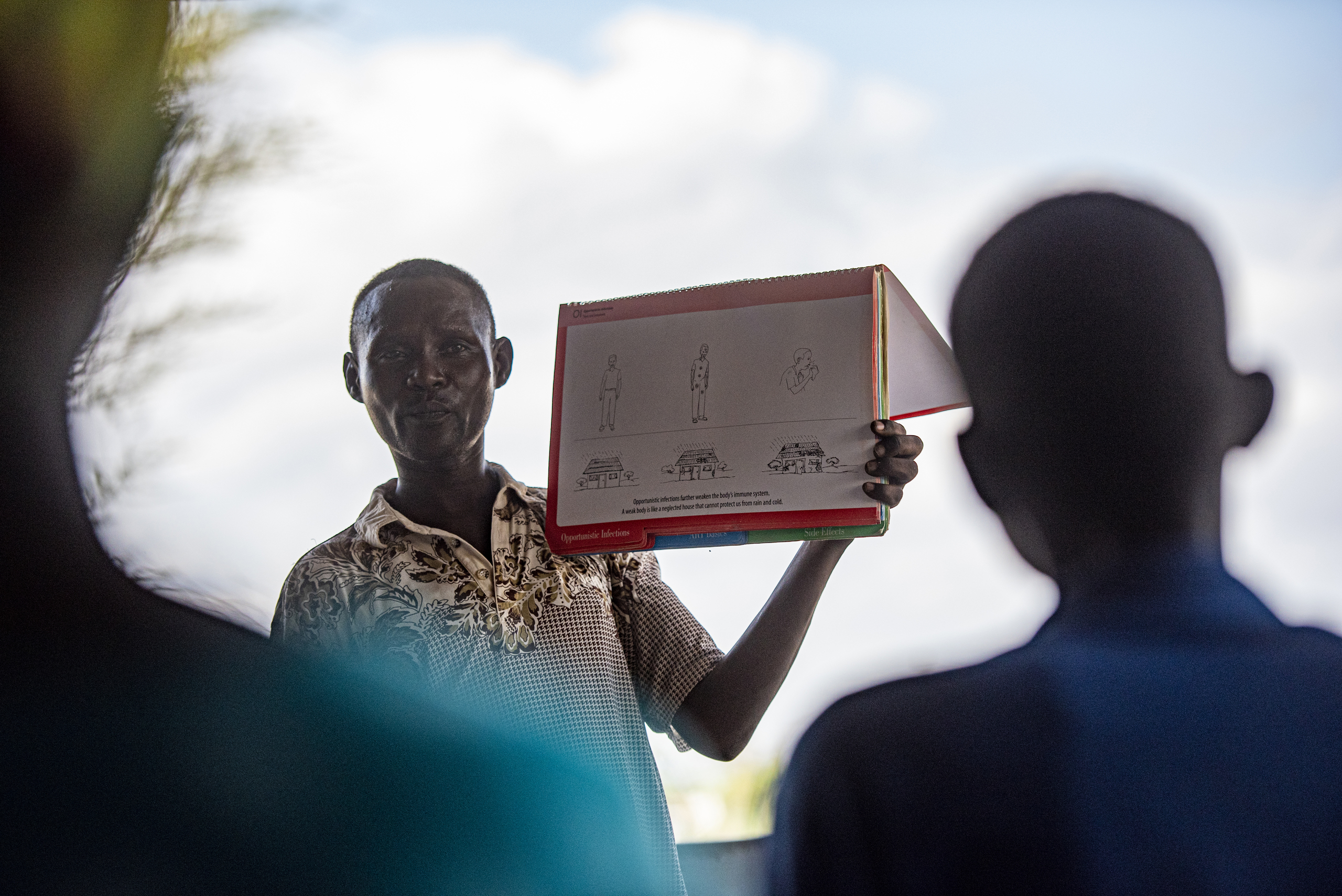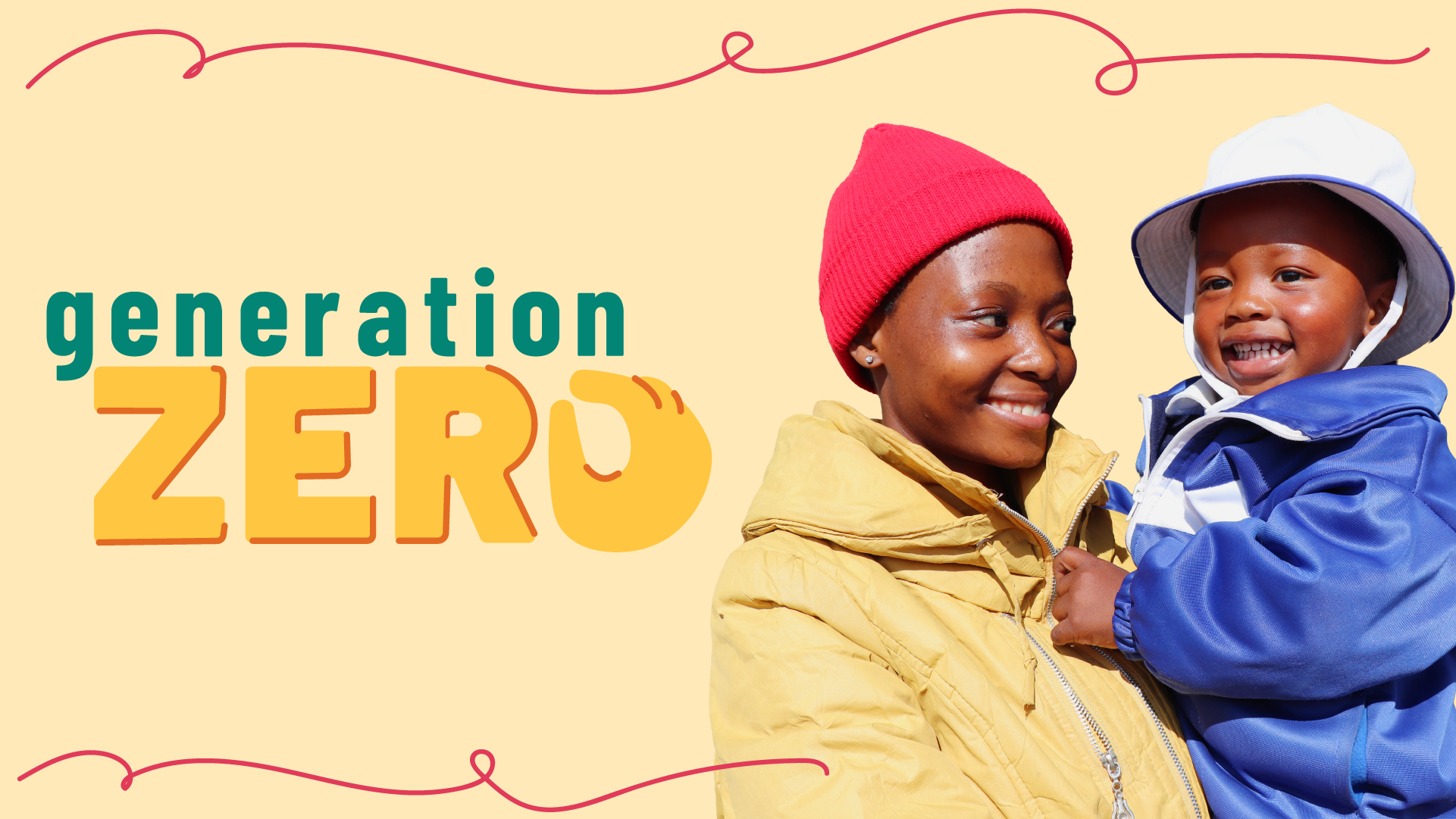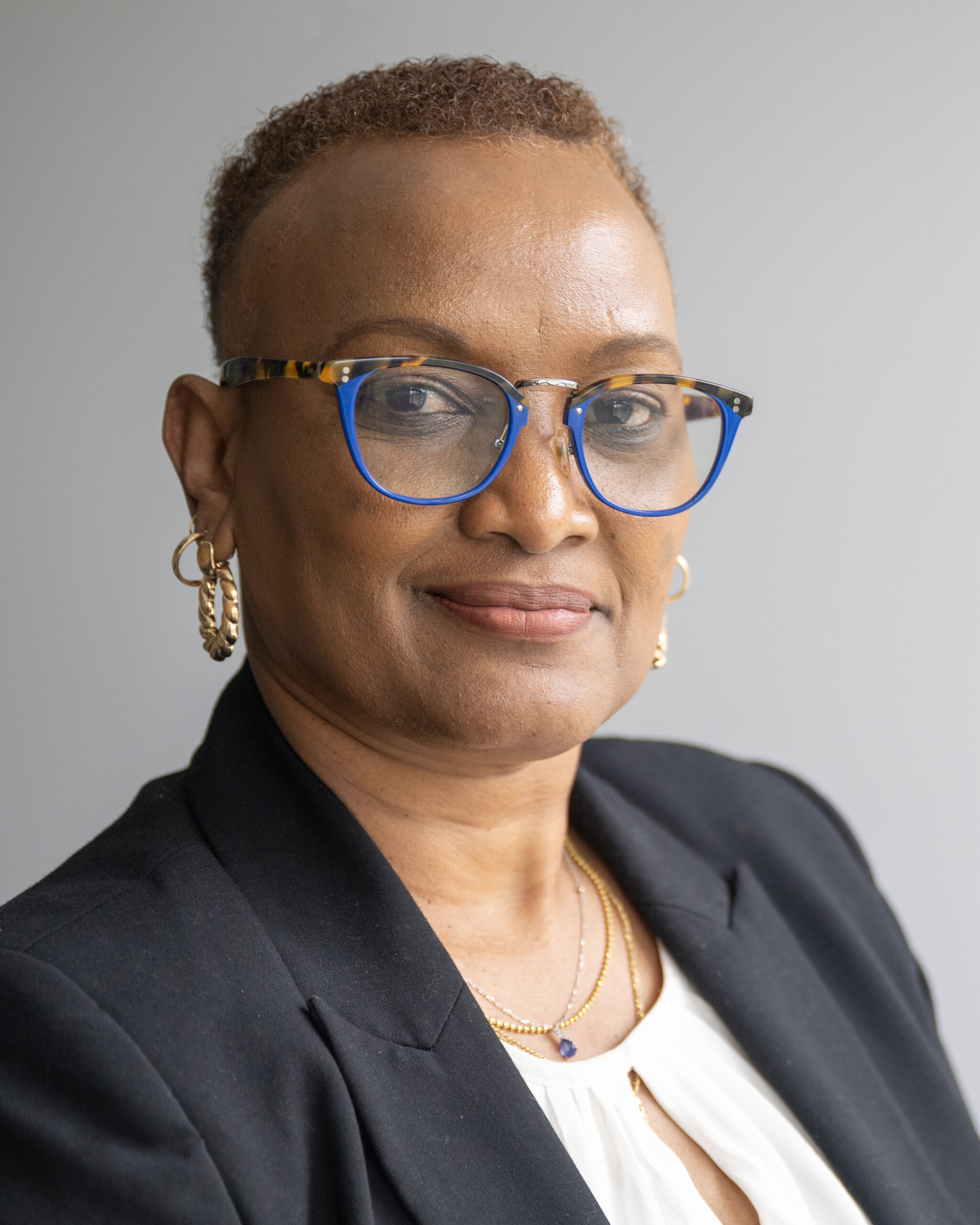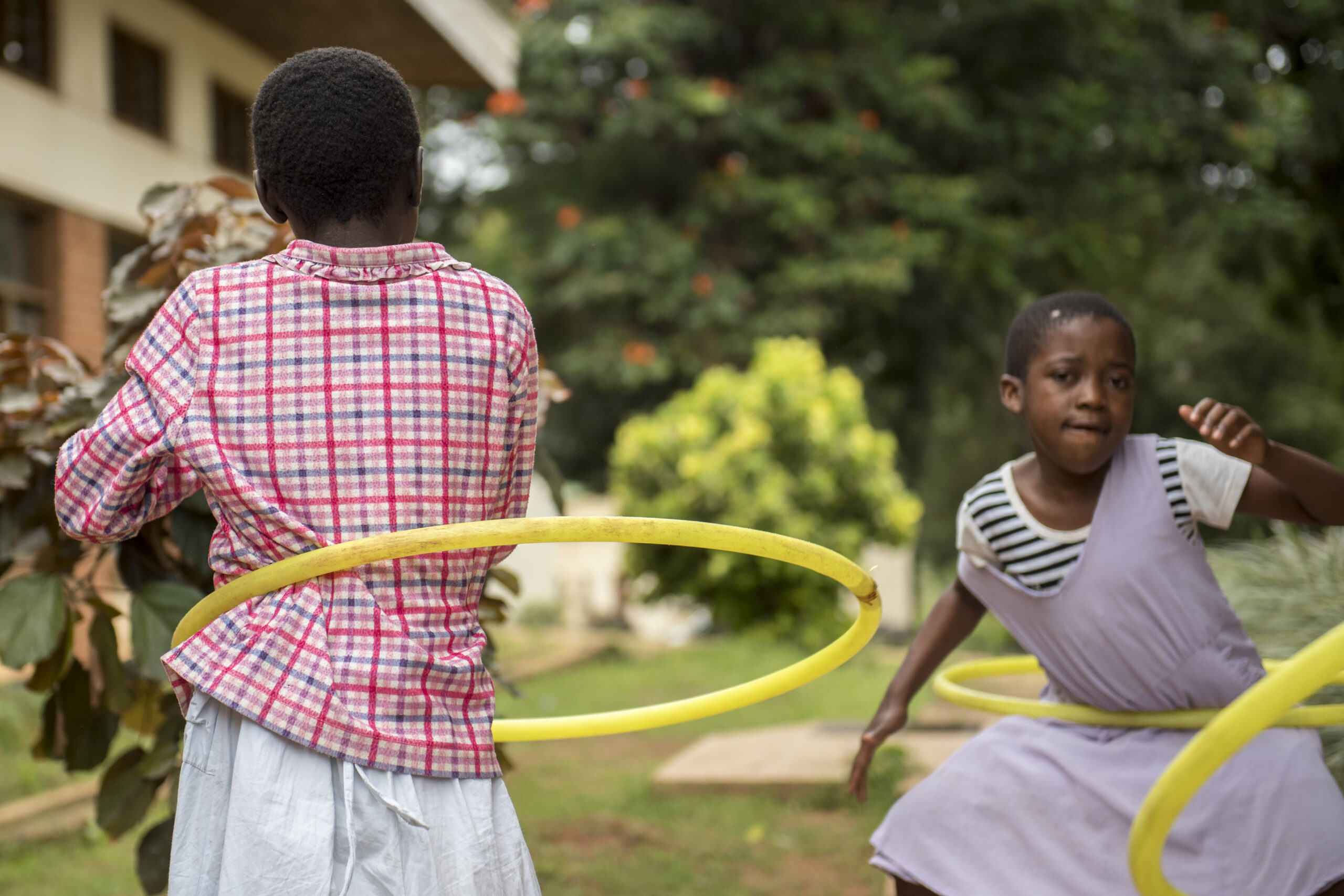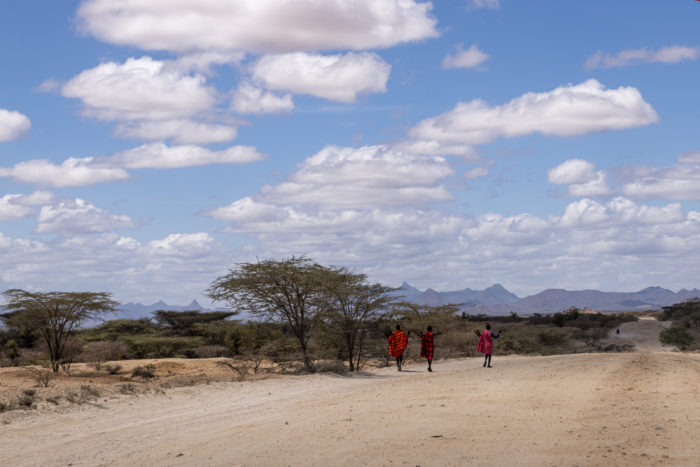 “I was sick all the time and would spend my days sleeping under a tree, too weak to do anything,” says Esther, a woman living in Kakuma, Kenya. “When I gathered the courage to go to hospital, they found that I was HIV-positive and had TB. My viral load was very high. The doctor advised me to stick to the medication.”
“I was sick all the time and would spend my days sleeping under a tree, too weak to do anything,” says Esther, a woman living in Kakuma, Kenya. “When I gathered the courage to go to hospital, they found that I was HIV-positive and had TB. My viral load was very high. The doctor advised me to stick to the medication.”
Taking medication can be a challenge in Kakuma, which is located in Turkana County, a hot, arid land in northern Kenya. Antiretroviral medication needs to be taken with food, and can induce intense side effects, such as nausea and dizziness, if not accompanied by food.
In Turkana County, farming is difficult and work is scarce. According to a 2017 report from the government of Kenya, most households in Turkana County report taking just one meal a day and will frequently go a day or more without eating.
Fortunately for Esther, she was given a porridge supplement when she was diagnosed with HIV, helping her to adhere to her treatment.
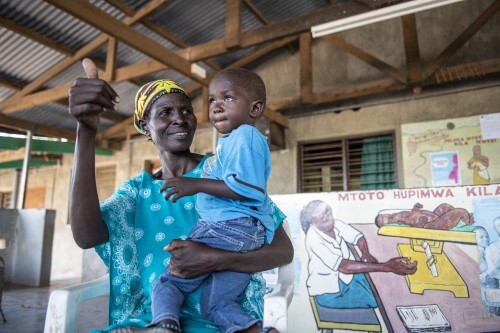 “At the end of the three months, my body regained its shape,” says Esther. “After eight months, I was TB-free and my viral load was suppressed.”
“At the end of the three months, my body regained its shape,” says Esther. “After eight months, I was TB-free and my viral load was suppressed.”
Esther stayed on treatment, but she constantly struggled to meet her nutritional needs. When she became pregnant in 2017, Esther was worried that she would infect her child and she worried that she might not have enough food. During an antenatal clinic visit Esther learned about an antiretroviral therapy (ART) adherence group, and she decided to join it. The group educated her about HIV and provided encouragement and solidarity. With their support, she was able to maintain her antenatal visits and her ART retention.
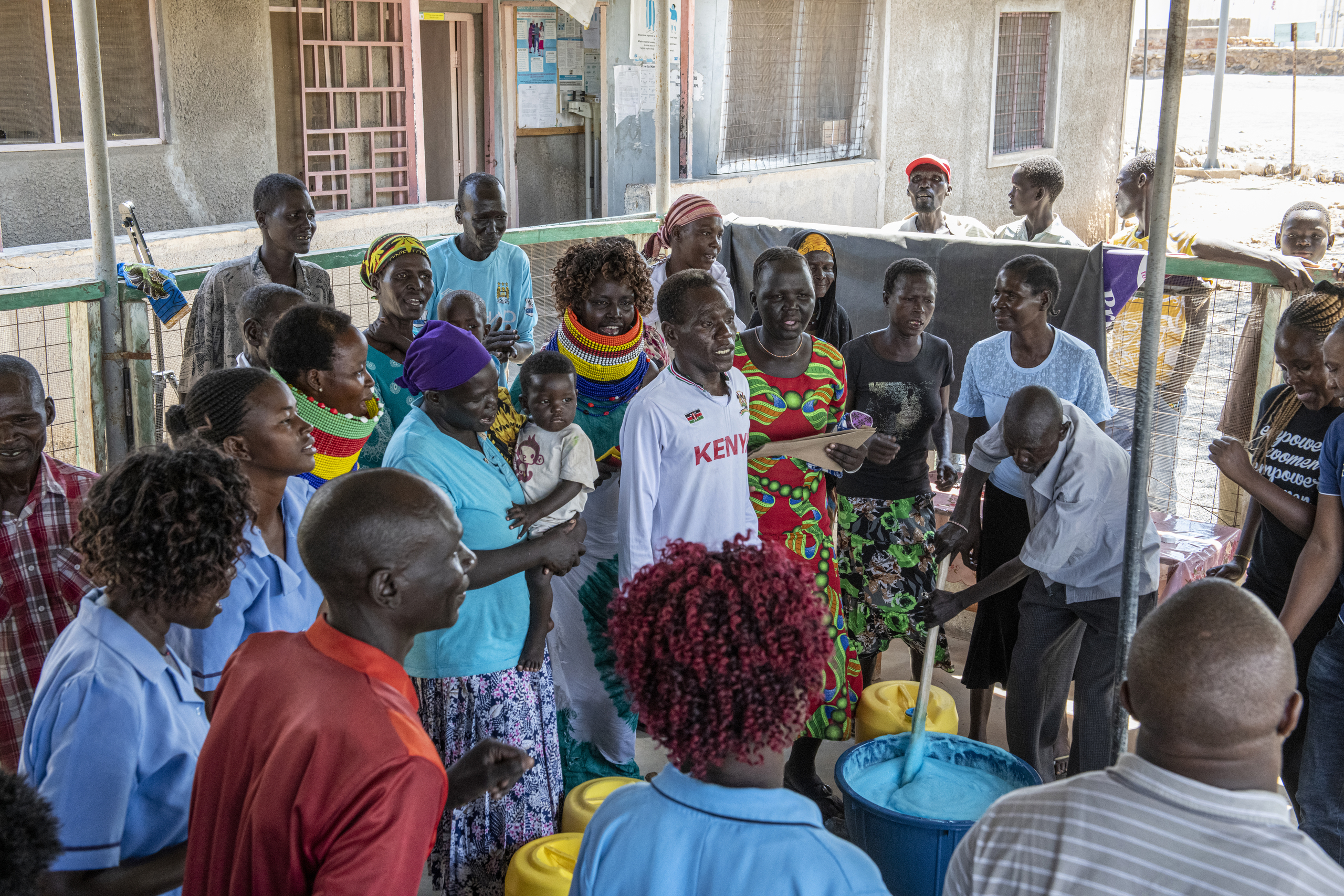 At Esther’s first ART group meeting, a program officer from the Elizabeth Glaser Pediatric AIDS Foundation (EGPAF) gave a health talk and explained about a livelihoods project—soap and envelope manufacturing to help group members earn income for their families. Starting with seed money provided through EGPAF, the group agreed to go into business together. Now, when they come together for their ART meetings, they also make soap and envelopes to sell in the community.
At Esther’s first ART group meeting, a program officer from the Elizabeth Glaser Pediatric AIDS Foundation (EGPAF) gave a health talk and explained about a livelihoods project—soap and envelope manufacturing to help group members earn income for their families. Starting with seed money provided through EGPAF, the group agreed to go into business together. Now, when they come together for their ART meetings, they also make soap and envelopes to sell in the community.
“The soap project is really helpful to us,” says Esther. “When you come to pick your soap, even if it is 10 liters, you can sell it out there and one can earn at least 500 shillings from sales. Now the project is looking for additional raw material to make variants of the soap to help expand our business.”
“Turkana has food insecurity,” says Jane Odinga, the community linkage officer. “Just picture the fact that you have food insecurity and you need to take drugs [that require a full stomach], it is a challenge. That is why the livelihood projects are important to help these people get their daily food.
“We can’t say that we will have a constant supply of the nutrition supplements [at the hospital]. We wanted these people to be self-dependent. With this project, you can sell your tradeable goods and get your daily food. And as a result, the clients are virally suppressed,” says Jane.
“What we’ve learned from implementing health programs to best support the people of Turkana is this: HIV programs are better utilized by populations when economic incentives are present,” says Dr. Eliud Mwangi, EGPAF’s country director in Kenya. “Our livelihood projects have made a lasting impact on the individuals utilizing them, from viral load suppression to personal and economic empowerment.”
“Through EGPAF, the livelihood projects have increased our number of people taking medication,” says Derrick Ongoma, the clinical officer at Kakuma Mission Hospital. “That has helped even in our viral suppression. In January 2018, our viral suppression was about 75 percent, but currently we are at 83 percent.”
“Women like us are the breadwinners, and now my children are enrolled in school because of this project,” says Esther. We are learning about business, but also about our health, and we are growing together.”
